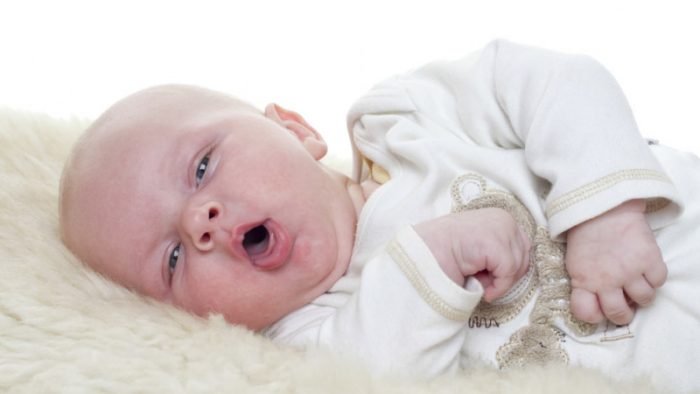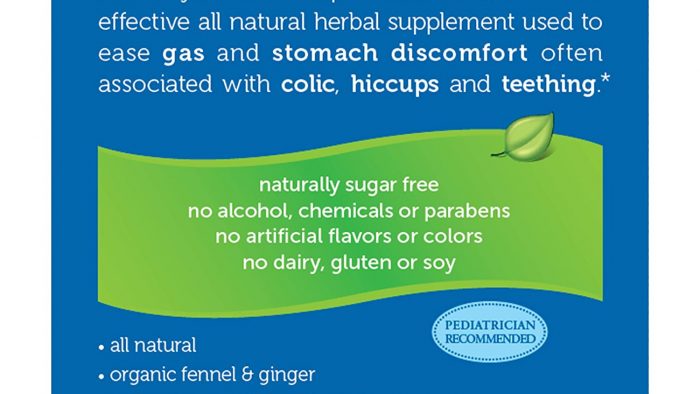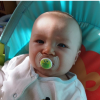What Causes Hiccups In babies? Setting The Facts Straight!
Have you ever wondered what causes hiccups in babies?
There are cultures that believe that hiccups are a sign that your baby is growing. Although that might be a good thing, when your baby tends to get hiccups too often, many of us parents would get worried. So what are hiccups? And should we be alarmed if our baby gets it?
Knowing what causes hiccups is important simply because as parents, we want to know if our baby is under respiratory distress. We want to know if it is disturbing our child and if he or she needs to see the doctor especially when it is happening too frequently.
I’ve put together this article so parents would be able to distinguish fact from fiction. We need to know what is going on with our child’s health, and we need to know for sure if hiccups can support or suppress our child’s growth and development.
The Real Causes Of Hiccups In Babies
Hiccups are actually very common in infants. As a matter of fact, even babies who are still in their mother’s womb can get hiccups. Although this might cause alarm in some moms, this is actually very normal. But babies aren’t breathing air in the womb yet. Why then do they have hiccups?
Hiccups are not actually associated with breathing. Hiccups happen when the child’s diaphragm is irritated or when its muscles get stimulated. The contraction of the diaphragm as well as the quick closing of the vocal chords are what produces the typical sound that you hear.
According to Lynnette Mazur, a professor of pediatrics at the University Of Texas Health Science Center in Houston, hiccups are caused by feedings. In most cases, it does not actually bother the child, instead, it will tend to be a nuisance to the parents.
Should I Be Bothered When My Baby Gets Hiccups?
In most cases, hiccups go away on their own after a few minutes. Experts say that parents have nothing to worry about if their child gets a hiccup. Parents should only be bothered by it only if it interferes with the baby’s daily activities. Hiccups are also not associated with growth and developmental problems.
Hiccups in general, do not bother babies. As a matter of fact, there are children who can still sleep soundly despite having hiccups. But if the hiccups are uncontrollable, and if they happen too often, the experts also suggests that you take your baby to his or her pediatrician.
When Should I Worry About My Baby’s Hiccups?
Although hiccups are common in babies, they are not common in children who are at least a year old, or older. Frequent hiccups can also be a symptom of gastro esophageal reflux disease or other serious conditions, especially when the baby coughs, spits, or vomits during his or her hiccups.

The key factor when it comes to hiccups is observation. The parent needs to know how long the baby has been having hiccups. If the parent fails to see that the baby is having frequent hiccups, the child will not be assessed by the doctor, and the parents will not know if the child has a medical problem.
Parents should also take note of the fact that pediatricians strongly advice against using stereotypical cures when your child has hiccups. You should never try startling you baby, nor should you try to pull his or her tongue. Keeping in mind that they might do more harm than good.
What Should I Do If My Baby Has Hiccups?
Whenever your child has hiccups, it would be best if you let your child stop it on their own. Just let your child go through it for a couple of minutes especially when he or she is not bothered by it. Not interfering with the hiccup will help you know if your child has any underlying medical problems.
If your child gets hiccups during feeding, you can try to feed your child before he or she gets too hungry so the baby can feed properly at the right pace. You can also minimize disruptions during feeding, and you can also make sure that they are calm and relaxed as they drink their milk.
If you really want to do something about it, you can try the following:
- Let your baby burp – Burp your baby by letting your child rest on your shoulders in an upright position. Pat your baby’s back gently so that the gas can slowly rise up. If your baby has hiccups while feeding, take a break and let your baby burp first before you feed your child again.

- Let your baby drink Gripe water – Gripe water is a combination of herbs, sodium bicarbonate, and water. It may contain herbs such as chamomile, ginger, cinnamon, or fennel. But you might want to ask your baby’s doctor about it before buying one for your child.
- You can use products such as Mommy’s Bliss Gripe Water. It is made from natural ingredients and it is formulated specifically for colic, gas problems, and hiccups.
- Let your child use a pacifier – pacifiers have been known to help relax the diaphragm, allowing your child to naturally stop the hiccups.
Conclusion
Hiccups in babies are not something that parents should automatically worry about. You need to remember that hiccups are very common especially among infants who are less than a year old. Hiccups are also not related to your baby’s breathing, but it has been associated with your baby’s feeding.
If your baby has hiccups, let your child stop it on his or her own. If it does not bother your baby, it should not bother you as well especially if it only lasts for a few minutes. If it does happen frequently, you can purchase a bottle of Mommy’s Bliss Gripe Water.
Whenever you baby gets hiccups, you should take note of the time so you will know how long it lasts. You should also bring your baby to the pediatrician just in case your child gets frequent hiccups. Parents should pay attention to their baby’s hiccups so that they can act right away if necessary.
To help you remember everything, here are the highlights:
- Hiccups happen when your baby’s diaphragm gets stimulated or irritated especially from feeding.
- If your baby has a hiccup, try natural means like burping or letting your child stop it with the help of a pacifier.
- Never use folk remedies like pulling your baby’s tongue, startling your baby, pressing the eyes, or pressing the fontanel. They can be very dangerous and they have never been proven to help stop hiccups.
- You only need to worry about hiccups when your child has an uncontrollable hiccup and if his or her hiccups happens too frequently.
- You should also take your child to the pediatrician if he or she is at least a year old and has been having frequent hiccups.
- If your baby has a hiccup that bothers your child too much, and if your baby has hiccups that can make your child spit, cough, or throw-up, you should have your child checked by the doctor as soon as possible.
- Let your baby drink Gripe water – Gripe water is a combination of herbs, sodium bicarbonate, and water. It may contain herbs such as chamomile, ginger, cinnamon, or fennel. But you might want to ask your baby’s doctor about it before buying one for your child.
- You can use products such as Mommy’s Bliss Gripe Water. It is made from natural ingredients and it is formulated specifically for colic, gas problems, and hiccups.
- Let your child use a pacifier – pacifiers have been known to help relax the diaphragm, allowing your child to naturally stop the hiccups.
Conclusion
Hiccups in babies are not something that parents should automatically worry about. You need to remember that hiccups are very common especially among infants who are less than a year old. Hiccups are also not related to your baby’s breathing, but it has been associated with your baby’s feeding.
If your baby has hiccups, let your child stop it on his or her own. If it does not bother your baby, it should not bother you as well especially if it only lasts for a few minutes. If it does happen frequently, you can purchase a bottle of Mommy’s Bliss Gripe Water.
Whenever you baby gets hiccups, you should take note of the time so you will know how long it lasts. You should also bring your baby to the pediatrician just in case your child gets frequent hiccups. Parents should pay attention to their baby’s hiccups so that they can act right away if necessary.
To help you remember everything, here are the highlights:
- Hiccups happen when your baby’s diaphragm gets stimulated or irritated especially from feeding.
- If your baby has a hiccup, try natural means like burping or letting your child stop it with the help of a pacifier.
- Never use folk remedies like pulling your baby’s tongue, startling your baby, pressing the eyes, or pressing the fontanel. They can be very dangerous and they have never been proven to help stop hiccups.
- You only need to worry about hiccups when your child has an uncontrollable hiccup and if his or her hiccups happens too frequently.
- You should also take your child to the pediatrician if he or she is at least a year old and has been having frequent hiccups.
- If your baby has a hiccup that bothers your child too much, and if your baby has hiccups that can make your child spit, cough, or throw-up, you should have your child checked by the doctor as soon as possible.

Leave a Reply